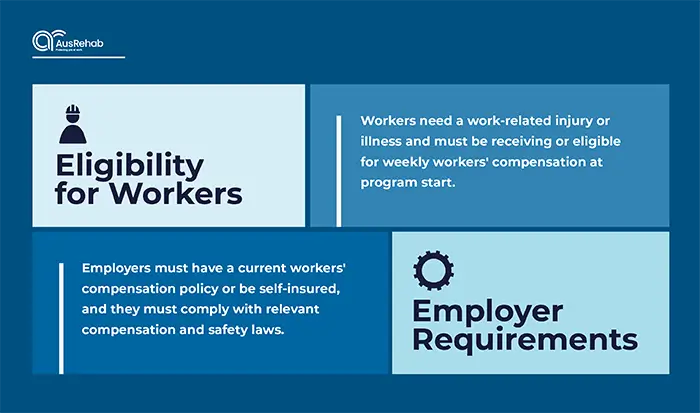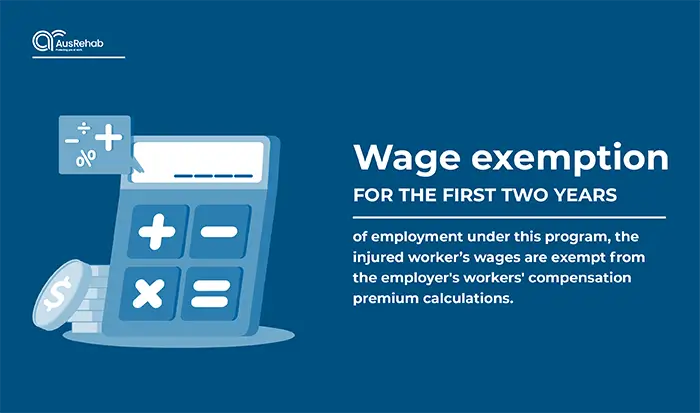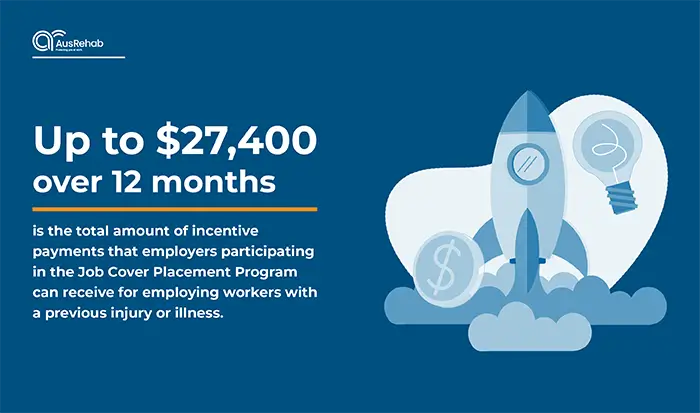Our Services
Resources
For Businesses
For Workers
May 07, 2024 • 9 min read
All three of SIRA’s schemes aim to return an injured worker to gainful employment, but each program packs a punch in their own way. Keep reading to find out how they differ and which scheme is most relevant for you.


One of the biggest goals of workplace rehab is to return the worker to work in a swift and timely manner. However, recovering workers often find themselves at a stage where they’ve not fully regained pre-injury capacity levels but are able to work alternative duties.
Enter these three NSW Government-supported schemes: Work trial, JobCover6 and Job Cover Placement Program (JCPP). While they can all be said to serve the same purpose, each program has different eligibility criteria, incentives and limits for both the trainee and host employer.
A work trial offers a structured, short-term work experience for a trainee with a host employer for up to 12 weeks. Typically, a work trial lasts between 4 to 5 weeks, but the duration can be adjusted based on what the trainee needs and the employer’s availability.
Being enrolled in a work trial helps the worker to remain active and acquire new skills, which is key for a constructive post-injury rehabilitation process.
This program is relevant when:
NOTE: A worker is known as a trainee and not a worker in a work trial program. This discrepancy is significant as trainees have no claim against the host employer’s workers compensation insurance. If the trainee experiences changes to their existing injury or sustains a new injury during the work trial period, this will be managed by the insurer as part of the workers claim.
A worker is eligible if they:
An employer may be eligible if they:

Work trials are designed to be mutually beneficial. They provide distinct advantages that help workers regain their professional footing, while also allowing employers to strategically enhance their workforce.

For a work trial to be successful, it’s essential for employers to fully understand their needs and effectively communicate the benefits to potential participants. Building trust through transparency about the program and clear, accurate descriptions of the worker’s capabilities and restrictions sets a strong foundation.
By ensuring all parties are informed and comfortable with the arrangement, work trials can facilitate successful re-entry into the workforce for injured workers while providing significant benefits to employers.
JobCover6 helps workers find work with a new employer. This program supports employers in offering employment for up to 6 months to a worker who is:
Employers utilising JobCover6 have the option to extend into the JCPP at the end of the program period.
Just like the eligibility criteria for work trials, a worker is eligible for JobCover6 if they:
An employer may be eligible if they:
JobCover6 and JCPP are a step up the ladder from work trials because in these two programs, the worker is entitled to a paid wage. Hence, workers enrolled in JobCover6 benefit by getting:
Employers who participate in this program obtain:
These benefits can be used individually, in a combination, or as a total package.
Similar to JobCover6, the JCPP is designed to encourage employers to offer ongoing paid employment to injured workers who are still recovering but cannot return to work with their pre-injury employer.
The program gives employers financial incentives that offset the cost of engaging an injured worker. The employer would also gain a highly motivated worker who can contribute productively to the company in the process.
Just like before, a worker is eligible if they:
An employer may be eligible if they:
The most significant advantage JCPP has over its two sister programs is guaranteed paid employment for at least a year.
Naturally, this means a greater sense of financial security, improved overall well-being, as well as the opportunity to eventually return to work with this employer.

“If the injured worker experiences any aggravation or recurrence of their injury within the first two years, the employer is not responsible for the associated costs. These costs are covered by the worker’s original claim.”
Employers gain considerable benefits such as:
These benefits can be used individually, in a combination, or as a total package.
The Job Cover Placement Program fosters a mutually beneficial situation. It motivates employers to offer job opportunities to injured workers, helping them return to the workforce. At the same time, it provides significant benefits and protections for the employers involved. This program goes beyond simply providing jobs; it’s about creating a supportive workplace that prioritises the health and recovery of its workers.
The Job Cover Placement Program is versatile and can be applied to a variety of roles across different industries. The key requirement is that the role must accommodate the specific needs of an individual with a pre-existing injury or health condition and must be sustainable and meaningful employment. Positions can be full-time, part-time, or casual, as long as they meet the minimum hours requirement.
*The details in this article were correct and current when it was written. However, changes in business practices, policies, and other pertinent areas may have occurred since then. Readers should confirm the current validity of the content on their own.


Want to Make a Change? Share with Anyone, Anywhere.
Be the first to know about our free training programs, videos, articles, and exclusive offers.

AusRehab acknowledges the Traditional Custodians of Country throughout Australia, recognising their deep ties to land, sea, and community.
We pay our respects to Elders past and present and extend our respect to all Aboriginal and Torres Strait Islander peoples today.
© 2025 AusRehab